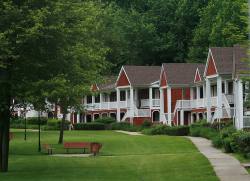Valhalla Schools Ordered to Repay $1.864 Million in Illegal Grant Money to Town of Greenburgh
- Monday, 21 November 2011 21:14
- Last Updated: Monday, 21 November 2011 21:54
- Published: Monday, 21 November 2011 21:14
- Hits: 4684
 In the latest development in the case of the Valhalla School District against the Town of Greenburgh, Judge Nicholas Colabella of the New York State Supreme Court has ruled that the town is entitled to recover $1.864 million previously paid to the Valhalla School District. The school district had filed a claim against the Town of Greenburgh for an additional $4.5 million due to them under a grant agreement that dated back to 2004. Under that grant, the Town of Greenburgh was to pay the Valhalla School District $650,000 per year for ten years to compensate them for educating children housed at Westhelp, a facility for the homeless on the campus of Westchester Community College. At the time, the Town of Greenburgh was receiving $1.2 million a year from the County to lease the shelter for the homeless. Greenburgh Town Supervisor Paul Feiner championed the grant of $650,000 per year as a means of funneling some of the County lease money to Valhalla to compensate them for housing and educating the homeless.
In the latest development in the case of the Valhalla School District against the Town of Greenburgh, Judge Nicholas Colabella of the New York State Supreme Court has ruled that the town is entitled to recover $1.864 million previously paid to the Valhalla School District. The school district had filed a claim against the Town of Greenburgh for an additional $4.5 million due to them under a grant agreement that dated back to 2004. Under that grant, the Town of Greenburgh was to pay the Valhalla School District $650,000 per year for ten years to compensate them for educating children housed at Westhelp, a facility for the homeless on the campus of Westchester Community College. At the time, the Town of Greenburgh was receiving $1.2 million a year from the County to lease the shelter for the homeless. Greenburgh Town Supervisor Paul Feiner championed the grant of $650,000 per year as a means of funneling some of the County lease money to Valhalla to compensate them for housing and educating the homeless.
However, in January, 2007 a review by the State Comptroller’s office found that the grant to the Valhalla School was unlawful as the monies were not being spent for a town-wide purpose but only for the benefit of one portion of the municipality. The Comptroller deemed it “an impermissible gift of public funds to a private entity,” and reported that the almost $1.9 million that had been already paid over three years had not been used for the benefit of children from Westhelp. In fact, no children from Westhelp were in attendance at Valhalla Schools and the monies were being channeled to” adult education and cultural enrichment programs.” According to a footnote in the judgment, two thirds of the children in the Valhalla School District are not even residents of the Town of Greenburgh, making the benefit of the gift to Greenburgh residents “incidental at best.”
But rather than accept the Comptroller’s decision that the grant was invalid, the Valhalla Schools moved to try to recoup the remaining $4.5 million that would have been paid under the grant agreement. In the November 18, 2011 ruling, instead of ordering the Town of Greenburgh to pay the balance of the illegal grant, the court ordered Valhalla to pay back the $1.864 million already received to the Town of Greenburgh.
In a highly unusual move, two local residents, Robert Bernstein of Edgemont and Herbert Rosenberg of Dobbs Ferry acted as Intervener Defendants in the suit contending that Town Supervisor Paul Feiner's support for the illegal grant created a conflict of interest in the town attorney's office that prevented the town from fairly representing their taxpayers. Consequently both the town’s attorneys and the team of Bernstein and Rosenberg filed claims. The Town argued to recover the funds on the basis that they were constitutionally prohibited from making the grant and that the school district failed to file a timely notice of claim. The Interveners based their claim on the indemnification agreements executed by the school district in which they assumed the legal risk for the grant.
In his decision, the judge wrote, “in fact, there is no inconsistency between the positions of the town and the intervener defendants in this action. The indemnification provisions are merely an alternate basis for recovery.”
Greenburgh Deputy Town Attorney David Fried said, ““We’re extremely pleased that the court agreed with the town’s position that there was no breach of contract and that the district failed to timely file its notice of claim.” Bernstein and Rosenberg claimed that they had won the summary judgment and said, “The ruling is a stern rebuke to Feiner who has for years insisted that the grant was legal and should be enforced.” Either way, the Town stands to recoup the misspent funds.
Will Valhalla appeal? According to the lawyers, it’s possible -- especially because Valhalla could find it impossible to come up with the money to repay the Town of Greenburgh due to the 2% tax cap, which will undoubtedly squeeze the school district even further.







